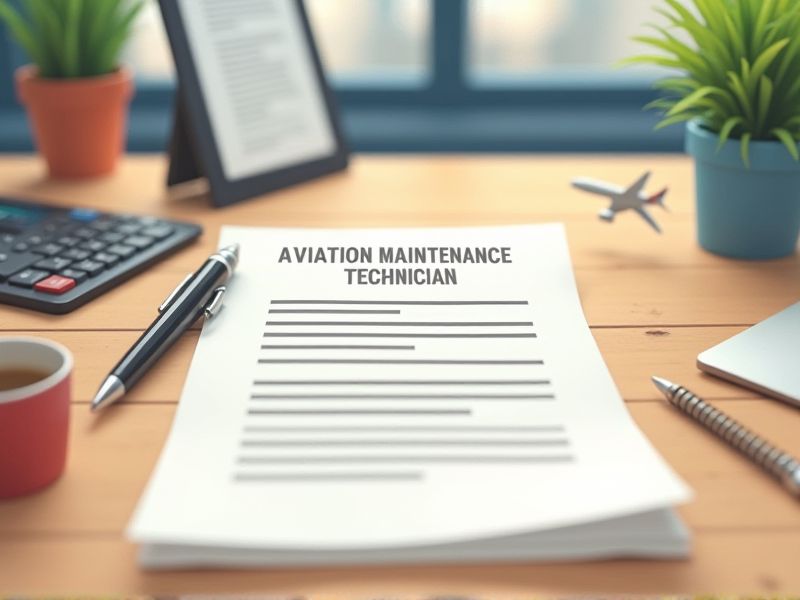
Aviation Maintenance Technicians (AMTs) require specific certifications due to stringent safety and regulatory standards in the aviation industry. These certifications ensure that technicians possess the necessary skills and knowledge to maintain and repair aircraft effectively. Regulatory bodies mandate these credentials to uphold the highest standards of airworthiness and passenger safety. Consider obtaining these key certifications to excel as an Aviation Maintenance Technician.
FAA Airframe & Powerplant (A&P) Certification
The FAA A&P Certification validates that an Aviation Maintenance Technician possesses the necessary skills and knowledge to safely maintain and repair aircraft. Regulatory compliance mandates that only certified technicians perform maintenance on aircraft to ensure airworthiness and safety standards. Airlines and maintenance organizations require the certification to ensure adherence to industry standards and reduce liability. Certified technicians typically earn higher salaries and have better job opportunities due to the recognized credibility of the credential.
FAA Inspection Authorization (IA)
The FAA Inspection Authorization (IA) empowers Aviation Maintenance Technicians to perform crucial inspections and major repairs, ensuring aircraft airworthiness. Holding an IA signifies a technician possesses advanced knowledge and skills, which leads to heightened safety standards in aviation. This authorization allows technicians to approve equipment for return to service, reducing operational downtime. IA certification helps maintain compliance with stringent FAA regulations, fostering trust among aviation stakeholders.
EASA Part-66 Aircraft Maintenance License
An EASA Part-66 Aircraft Maintenance License is needed because it provides standardized qualifications recognized across Europe, ensuring maintenance technicians are competent to high international standards. This license allows maintenance technicians to certify the release of an aircraft back into service after maintenance, ensuring aircraft safety and reliability. It enhances employability prospects as it is recognized by airlines and maintenance organizations globally, allowing for easier movement within the industry. Holding this license signifies compliance with aviation regulatory requirements, which is essential for maintaining operational legality and safety standards in the aerospace industry.
Avionics Technician Certification
Avionics Technician Certification equips technicians with specialized knowledge of electronic systems crucial for modern aircraft functionality. This certification ensures technicians can accurately diagnose and repair avionics systems, minimizing errors and enhancing safety. Without proper certification, maintenance work may not comply with industry standards, leading to potential operational failures. Certified technicians have a competitive edge in the job market, reflecting their capability to handle sophisticated avionics equipment.
OSHA Safety Certification
Aviation Maintenance Technicians deal with complex machinery and hazardous materials, increasing the likelihood of accidents without proper safety protocols. OSHA Safety Certification ensures these technicians are well-versed in industry safety standards, thus reducing the risk of workplace injuries and fatalities. This certification also helps maintain regulatory compliance, avoiding costly fines and enhancing the company's reputation. Employers prefer certified technicians as it translates to higher safety standards and potentially lowers insurance premiums.
IATA Dangerous Goods Regulations Certification
The IATA Dangerous Goods Regulations Certification is essential for Aviation Maintenance Technicians because it ensures they understand how to handle hazardous materials safely, reducing the risk of accidents. Certification provides the technicians with the necessary knowledge to comply with international shipping and handling regulations, which is crucial for maintaining global aviation safety standards. This certification helps in identifying and mitigating potential risks associated with the transport of dangerous goods, minimizing the likelihood of operational disruptions. It also enhances an individual's professional qualifications, thereby increasing career advancement opportunities within the industry.
Lean Six Sigma Certification
Lean Six Sigma Certification equips aviation maintenance technicians with skills to identify inefficiencies, leading to reduced operational costs. Mastery of these principles enhances process consistency, directly improving aircraft safety and reliability. The certification fosters a culture of continuous improvement, aligning maintenance operations with stringent industry standards. Implementing Lean Six Sigma strategies can significantly decrease turnaround times for aircraft maintenance, boosting overall productivity.
Quality Management Systems (QMS) Certification
Quality Management Systems (QMS) Certification is essential for Aviation Maintenance Technicians because it ensures adherence to internationally recognized standards, reducing the risk of errors during aircraft maintenance. This certification enhances reliability and safety, crucial factors in the aviation industry where human lives depend on aircraft integrity. With a structured QMS in place, maintenance processes become more efficient, leading to reduced downtime for aircraft. Certification can also provide a competitive edge in the industry, as it demonstrates a commitment to excellence and regulatory compliance.
Aviation Safety Management Certification
Aviation Safety Management Certification ensures that Aviation Maintenance Technicians understand standardized safety protocols, reducing the risk of accidents. Enhanced safety knowledge leads to better decision-making during maintenance procedures, directly affecting aircraft reliability. Certification provides technicians with up-to-date information on industry regulations, ensuring compliance and avoiding legal issues. It fosters a culture of safety within the organization, promoting continuous improvement and overall operational safety.
Aircraft Structural Repair Certification
Aircraft Structural Repair Certification ensures Aviation Maintenance Technicians possess the necessary skills to address complex structural issues in aircraft. It enhances safety by certifying that repairs meet industry standards, reducing the risk of structural failures during flight. This certification assures airlines and passengers of a technician's ability to maintain and repair vital parts of the aircraft efficiently. Failing to be certified can lead to financial penalties or revocation of maintenance licenses by aviation authorities.
Summary
With certifications, you enhance your expertise and stand out in the aviation maintenance field. Your career opportunities expand, potentially leading to roles with higher responsibility and better pay. Certification also develops your technical skills, ensuring compliance with industry standards. Consequently, you elevate safety and efficiency in aviation operations.
